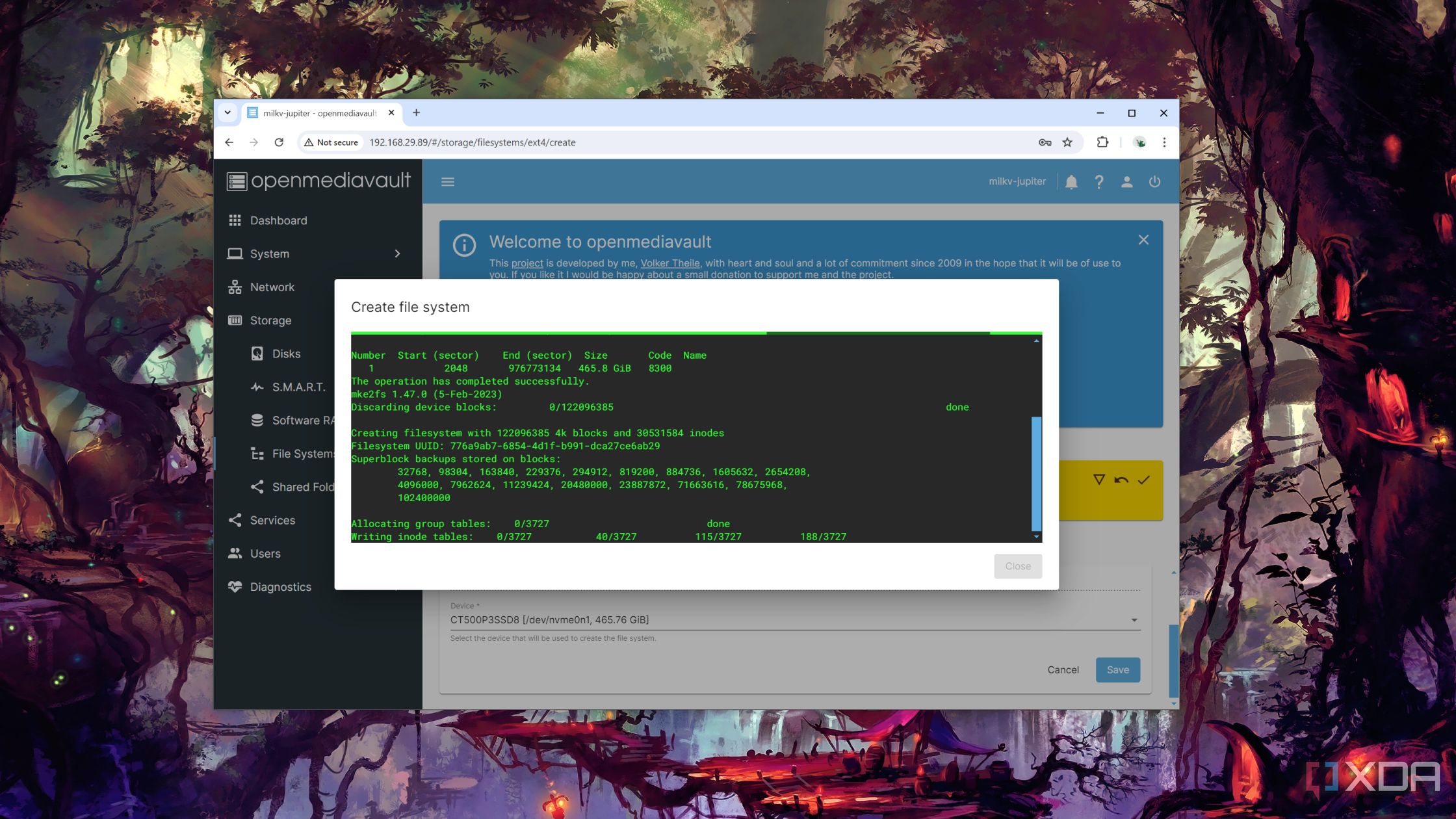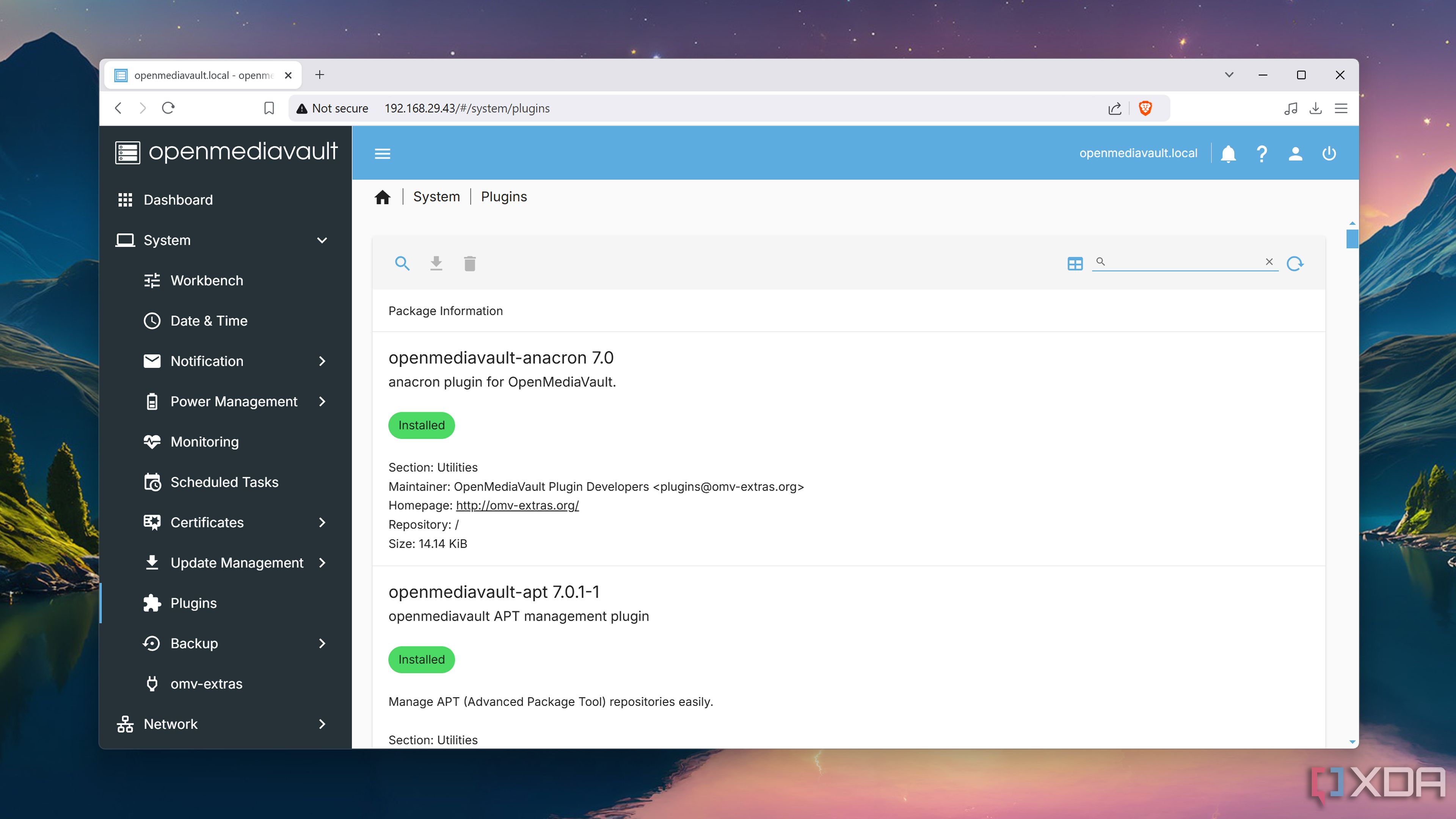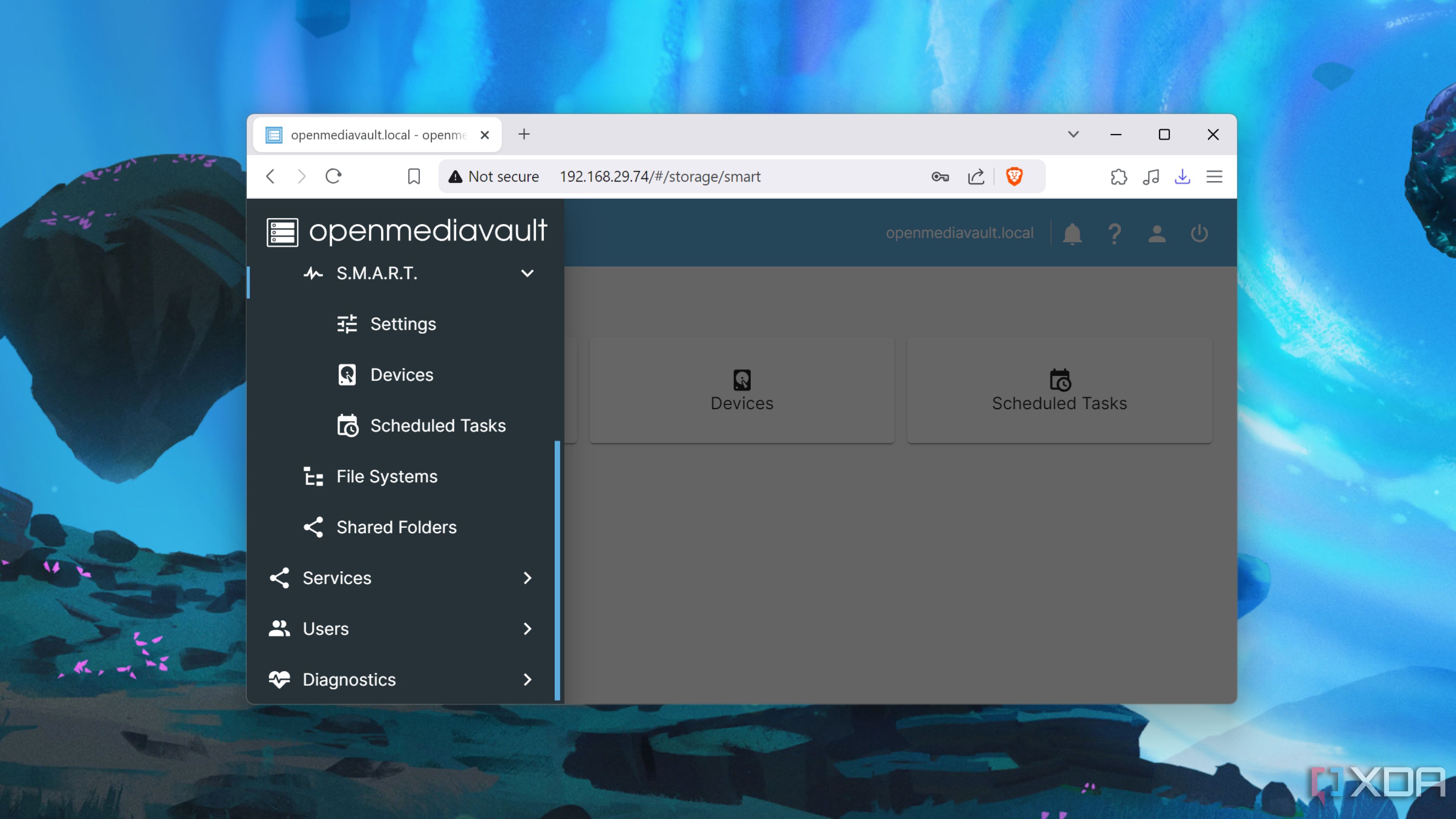When you’re building a Network-Attached Storage, choosing the right operating system is just as essential as picking out the correct hardware. Unraid and TrueNAS Scale are usually the distributions that most users flock to, and there are compelling reasons to go with either option. Unraid lies on the beginner-friendly spectrum, with enough applications and file systems to keep most NAS lovers satisfied, while TrueNAS Scale is a free OS that crams top-notch ZFS support with powerful RAID provisions and terrific virtualization performance.
But amid the Unraid vs. TrueNAS Scale arguments, OpenMediaVault emerges as the third contender for the throne of NAS oeprating systems. While it’s not as popular as its rivals, OMV deserves more love from the NAS community.
OMV is a FOSS distribution in every sense of the word
No paid licenses or paywalled features to worry about

Confession time: Although paid distros like Unraid and HexOS have their neat perks, I’m not a big fan of shelling out even more money for a mere operating system. With the hardware prices getting completely out of hand, spending the extra dough on software makes little sense – especially since I can grab a ton of high-capacity HDDs for the same price as Unraid’s lifetime license.
TrueNAS Scale is a lot better in that regard, since the OS is available for free. Unfortunately, iXsystems locks some of the advanced features behind the Enterprise edition, which can be a real deal-breaker if you wish to use fibre-channel networks for your storage server.
Then there’s OpenMediaVault, a free and open-source distro that ships with the GNU General Public License v3. As such, you can access its arsenal of features without worrying about any corporate strings attached to them. But that’s just one of its neat facilities…
Supports practically every home lab device out there
And it’s just as lightweight
High-end storage servers are typically dominated by x86 devices. But what if you wanted to build a budget-friendly NAS solution? Well, TrueNAS Scale requires at least 8GB RAM due to its reliance on ZFS, while Unraid needs half as much memory, but neither will work on a non-x86 system.
In contrast, OpenMediaVault is an ultra-lightweight distribution that can work with as little as 1GB of memory. However, the real showstopper is its support for other CPU architectures besides good ol’ x86. If you’re planning to use an ARM SBC for your file-sharing and data archival needs, OpenMediaVault is the way to go. As someone who has used the Raspberry Pi 5 as a NAS for a couple of months, I can confirm that OpenMediaVault works incredibly well with the SBC. You can even outfit your ARM boards with all the essential OMV plug-ins (and I’ll get to them in a bit).
Heck, you can even use OpenMediaVault to build a functional NAS out of a RISC-V system. Sure, the plug-ins were broken the last time I installed the RISC-V version of OMV on my Milk-V Jupiter, but the rest of the OS was pretty snappy – and it’s my favorite project for the $60 RISC-V motherboard.
A simple UI, armed with (most of) the essential NAS features
Although I consider Unraid the easiest NAS distribution, OMV is fairly simple for beginners to pick up, especially when contrasted with the likes of TrueNAS’ lineup. Creating a storage pool with your storage devices barely takes a few minutes. Likewise, you can share your newly-configured pools right after creating a user and granting them read/write privileges over your favorite network share protocol.
For a lightweight NAS operating system, OpenMediaVault has most of the features you’d need from your storage server. Even without plugins, it’s compatible with a wide range of file systems, including EXT4, BTRFS, JFS, and XFS. Likewise, it’s capable of checking the S.M.A.R.T. metrics of your drives and can send notifications when it detects a failing drive. Aside from the privilege-based user management, OMV supports SMB, NFS, and Rsync protocols for your shares. And when it comes to virtualization and backups, you can leverage a host of plugins to your advantage…
Plug-ins bring its functionality to the next level
Without its plugins, I’d probably rank OpenMediaVault below the old (yet highly stable) TrueNAS Core and XigmaNAS. But once you arm OMV with the right set of first and third-party plug-ins, it transforms into a behemoth of an OS.
Hosting applications locally is one of the best side projects for a NAS, and the openmediavault-compose + openmediavault-podman plug-ins are all you need to deploy your favorite services inside containerized environments. If you’re on a somewhat powerful system, you can leverage the might of the KVM hypervisor with the openmediavault-kvm add-on. Likewise, ZFS has its own plugin, and while it may not be as robust as TrueNAS Scale’s inbuilt support for the powerful file system, it’s all you need to add Zpools to your OMV setup.
For iSCSI fans, the openmediavault-tgt plugin lets you add block storage to the uber-lightweight distribution, while the openmediavault-rsnapshot utility is perfect for creating point-in-time snapshots of your OMV pools. And the list goes on and on…

Related
10 of the best plug-ins for your OpenMediaVault NAS
Turn your OMV NAS into a behemoth of a storage server with these incredible plug-ins
OpenMediaVault is the underrated king of NAS distributions

As someone who started his NAS journey with a mere Raspberry Pi, I adore OpenMediaVault’s lightweight nature and customizable design. However, I must admit that it has a couple of drawbacks. The barebones version of the OS can pale in comparison to the hardcore NAS-centric facilities offered by its rivals. Even with the Docker Compose and Podman plug-ins installed, Unraid (and even TrueNAS Scale, for that matter) has a simpler UI for self-hosting containers than OMV. Likewise, this lightweight NAS distro can’t outperform TrueNAS Scale on the ZFS front.
But if you’re looking for a FOSS NAS distribution that can work with almost every home lab system under the sun and are willing to configure a couple of plug-ins, OMV is by far the best operating system for your storage server.
.png)











 English (US) ·
English (US) ·